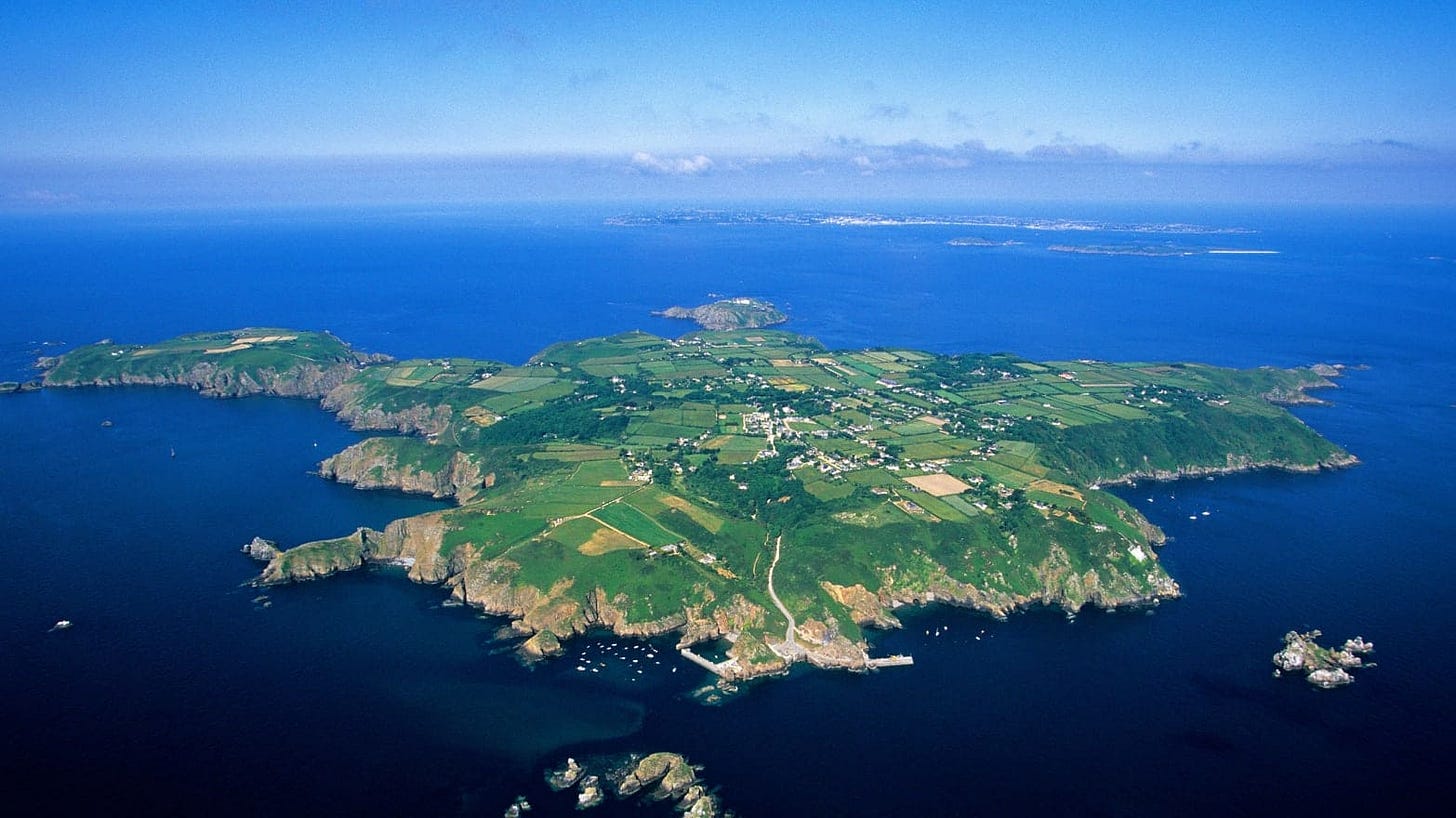Here's the world's best kept secret
we're spilling it for you
Hey everyone!
Halfway through the week, and we’re whisking you off to Sark, the tiny Channel Island rewriting the rules of wealth.
Today’s deep dive explores why this car-free, bank-free fiefdom is the ultimate playground for the ultra-rich, and what its “untouchability” means for the rest of us.
So, let’s get into it…
📌 So, what is the Sark island?
Tucked away in the English Channel, Sark is a really tiny island which is just 5.45 km² in size (yep, even smaller than New York’s Central Park) with fewer than 600 people calling it home.
It has no cars, no airports, not even a traffic light in sight. Locals get around on bicycles, on foot, or in charming horse-drawn carriages.
But don’t be fooled by the cobblestone streets and quiet countryside vibes. Beneath that old-world charm lies something you can probably never imagine: over $12 billion quietly parked in offshore trusts, shell companies, and secret vaults.
That’s nearly $21 million per resident, a number that makes you do a double-take.
📌 But why do the rich love the Sark island so much?
I can give you 3 primary reasons:
0% Income Tax, 0% Corporate Tax, 0% Capital Gains Tax: Unlike tax havens like Bermuda or Luxembourg, Sark imposes no taxes on foreign income, dividends, or inheritance. By comparison, the average OECD country levies over 30% on personal income and 20–25% on corporate earnings.
For context, the average billionaire pays 8–12% in capital gains taxes globally. In Sark? NOTHING.
No CRS Reporting: Sark doesn’t participate in the Common Reporting Standard (CRS), the global pact that shares financial data across 100+ countries.
That means your Swiss bank account? It can be tracked. But your Sark trust? Invisible.
Pre-Internet Privacy: Sark has no digital land registries, no public LLC databases, and no appetite for modern transparency laws. Wealth here is managed via paper filings and handshake deals with elite London law firms.
📌 But how does this ‘vanishing’ wealth really works?
Step 1: The neutral-zone LLC
First, they set up an anonymous LLC in a jurisdiction that prioritizes secrecy over scrutiny.
For example, Wyoming (yes, Wyoming), where LLC owners’ names aren’t public, or Singapore, where nominee directors can shield identities. These LLCs act as “cutouts,” neutral middlemen that hold assets without linking to their true owners.
But, why Wyoming? Over 500,000 LLCs are registered there, thanks to laws that let owners stay anonymous. Even the Panama Papers leak couldn’t crack them.
And why Singapore?: Its LLCs can be tied to private family offices, which manage $1.2 trillion in assets globally.
This LLC becomes the first “ghost” in the machine, a legal entity that exists only on paper, with no office, employees, or digital footprint.
Step 2: Transferring funds to the Sark Trust
Next, assets are funneled into a Sark-based trust, crafted by elite UK law firms like Allen & Overy. Sark’s trusts are unique:
The perpetual duration is more: Unlike US trusts (which often expire after 90–120 years), Sark trusts can last forever, bypassing probate and inheritance battles.
No CRS, No KYC: Sark doesn’t enforce the Common Reporting Standard (CRS) or “Know Your Customer” rules. Trustees aren’t required to disclose beneficiaries, even to Sark’s government.
Example: A 2021 leak revealed a Sark trust holding $850 million in Amazon shares for an unnamed European heir. The trust’s documents were handwritten and stored in a fireproof vault on the island.
Step 3: Then comes the silent entities
To bury ownership completely, the Sark trust distributes assets through a daisy chain of shell companies in jurisdictions like:
Cook Islands: Home to 40,000+ offshore entities, this is where courts can’t seize foreign-owned assets, even for lawsuits.
Nevis: For $1,500, you can set up a shell company here with zero public records.
Each layer adds “plausible deniability.” By the time the money reaches a Swiss bank account or Dubai skyscraper, the trail is colder than Sark’s winter tides.
BTW, this is all legal
This isn’t money laundering. It’s just a loophole:
There’s no tax evasion: Sark doesn’t tax foreign income, so technically, users aren’t dodging bills, they’re avoiding them structurally.
Privacy is a human right: Firms like Appleby (of Paradise Papers fame) argue privacy is a “fundamental freedom” for high-net-worth clients.
But critics call it “lawful but awful.” Oh, and this is invitation-only. You cannot just wake up and decide to build a Sark trust, you need to be invited.
That’s it for today. If you found this edition interesting and entertaining, please drop a like and follow us for more!
See ya👋




